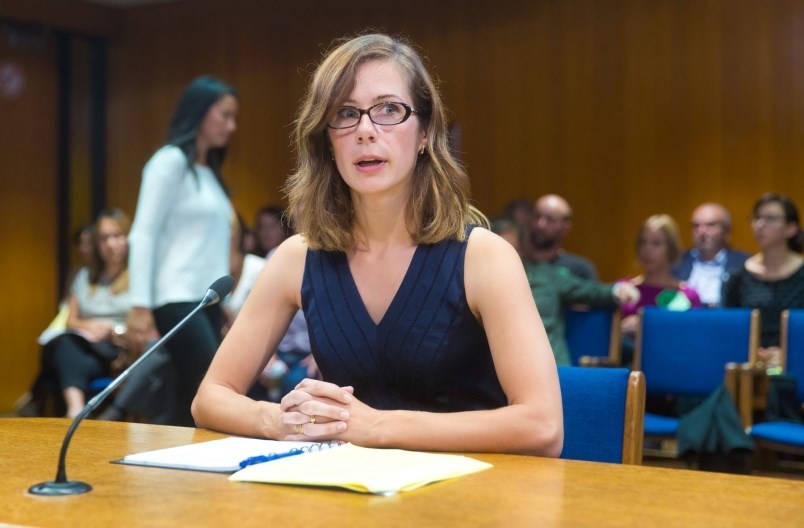A women’s advisory committee would give Richmond the opportunity to examine city policies and planning through “the lens of a woman,” according to one city councillor.
“Women are typically underrepresented in city planning and transportation departments, and things like that, so getting that feedback is really important for our city,” Coun. Kelly Greene told the Richmond News.
Greene has put forward a motion for Monday’s general purposes committee meeting, asking city staff to look into the creation of a women’s advisory committee for Richmond.
Not only would the committee help increase civic political engagement, it would also give women access to leadership opportunities that they may not otherwise have, in a field that’s still largely dominated by men, said Greene.
Advisory committees, which address specific areas of civic concern, are made up of members of the community. Applications for the volunteer positions open up annually.
Greene said she was inspired to put the motion forward after reading recommendations outlined in the Federation of Canadian Municipalities’ (FNC) run, win, lead framework.
“(The framework) has different ways in which you can support leadership roles in the community, with a particular thought of being able to have opportunities for women to be in municipal politics… because it is generally a male-dominate field,” Greene said.
The framework notes that those opportunities are even scarcer for Indigenous, Black, racialized and LGBTQ2S+ women, as well as women who are newcomers, live with a disability, or earn low incomes.
Because politics is “very male and quite white,” it’s important to open doors to that field and ensure there is a diversity of voices at the decision-making table, Greene said.
She added that the pandemic is also impacting women more than men, making it important to start working on forming a women’s advisory committee.
“Women are getting laid off first, they’re getting their hours cut first, they’re the first ones that have to stay home when their dependents require them to be there to do caregiving,” said Greene.
“So it’s really important that… we (are) making sure that when we’re planning our recovering from the pandemic that we’re looking at it with a gendered lens as well.”



